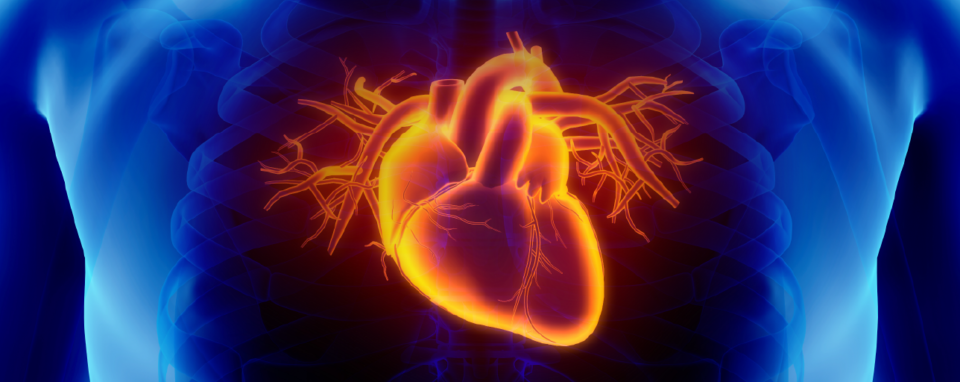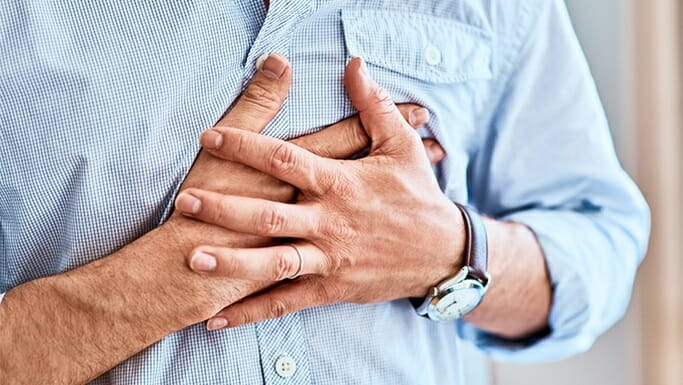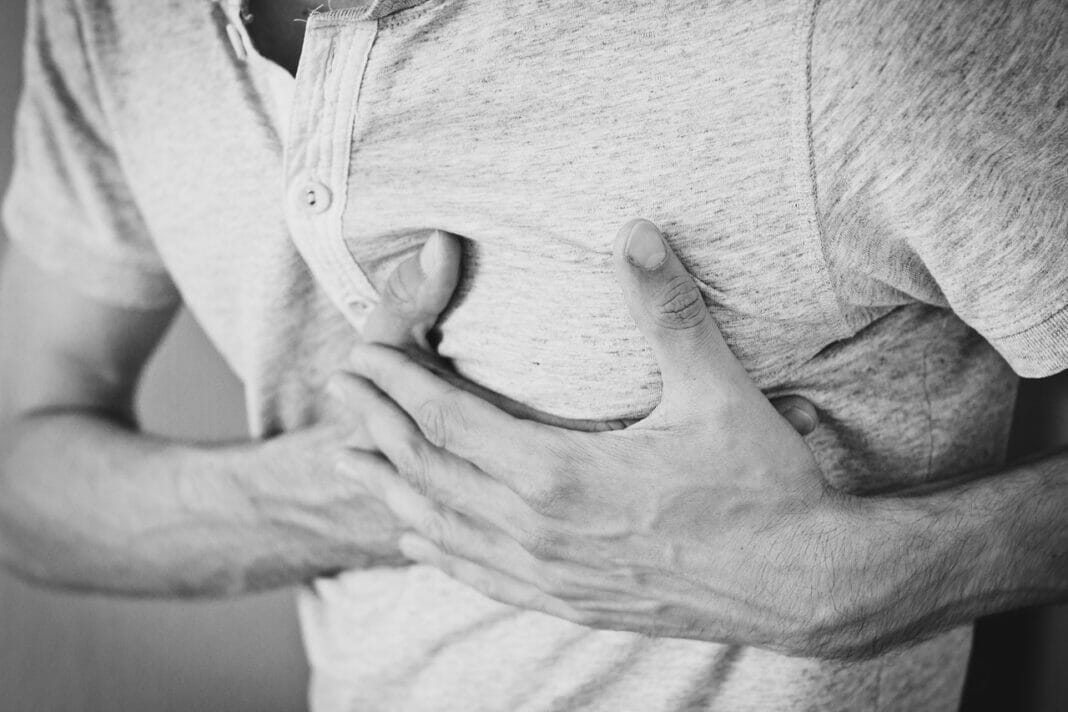Have you been asking yourself this question, “Can Anxiety Cause Chest Pains?” In this article, your question has been answered. Read on as you learn more about anxieties and chest pain.
Chest pain is known to be a common symptom of anxiety and panic attacks. People who Have had anxiety or panic attacks complain of severe chest pain. 25% of humans tend to experience chest pains during their lifetime.
Chest pains are caused by different factors, including anxiety attack and panic attack. In USA 2–5% of people develop a panic disorder each year. Panic disorder sometimes causes panic attacks and it tends to affect women twice as much as it does men.
Chest pains are always very alarming. Some people associate chest pain with cardiac (heart) conditions such as angina (inadequate flow of blood to the heart) or myocardial infarction (heart attack). Chest pain can also be caused by myriad conditions which has nothing to do with the heart. The most common cause is an anxiety attack.
In this article, we have laid out the impact of anxiety attacks and how they cause chest pain, and what you should expect when you see your doctor with anxiety-related chest pain.
It is normal for every human to feel worried, fearful, or nervous from time to time. This is a typical reaction to a typical moment in our everyday life. Some people tend to experience anxiety on a regular basis. The symptoms can move beyond feelings of concern or worry to other physical reactions. Most of the time, these symptoms are mistakenly associated with other conditions. If you experience anxiety frequently, learning to understand your chest pain can help you find some ways to relieve and identify when you need medical help.
How Can Anxiety Cause Chest Pains?
Chest pain can be caused by both panic attacks and anxiety attacks. These attacks are similar, although anxiety attacks are less intense. Anxiety attacks are usually triggered specifically in someone’s life, meanwhile, a panic attack can happen without an obvious trigger.
In both anxiety attacks and panic attacks, the symptoms occur due to stress hormones that trigger a person’s fight or flight response. This also causes other symptoms, like difficulty breathing. People who often have anxiety or panic attacks may have an issue called anxiety disorder. There are different types of anxiety disorders, like generalized anxiety disorder and panic disorder.
To diagnose any of these conditions, a doctor would have to check that the patient’s symptoms match with those outlined in Diagnostic and Statistical Manual of Mental Disorders, 5th edition.
Researchers have not found out what exactly causes anxiety disorders, but it is likely a combination of genetic, biological, and environmental factors.
The Link Between Chest Pain And Anxiety
Since some anxiety symptoms overlap with symptoms of other medical conditions, many people with anxiety worry their symptoms are a sign of something more serious.
Anxiety can sometimes show up as physical symptoms (somatic symptoms). On a yearly basis, about 7 million trips to the ER (emergency room) are due to chest pain and most of these people did not even have heart problems.
Research done in 2010 shows that psychological factors like anxiety are present in up to 58% of people who complain of chest pain. However lots of these people have never received an anxiety diagnosis, and they continue to have chronic chest pain and multiple trips to emergency services as a result of the pain.
Read Also: 20 Effective Home Remedies For Constipation
The Impact of Anxiety Attacks
Panic attacks or anxiety attacks are caused by intense fear and emotional distress. They usually strike suddenly and without warning. The attack sometimes lasts for several minutes or up to an hour.
These attacks sometimes have hidden triggers. Sometimes, though, they occur without a known reason. Usually, anxiety attacks are recurrent. They are distressing and scary to experience for family and friends who witnessed them.
When you have had panic attacks, it is normal to worry about having more. Attempts taken to avoid these attacks can lead to extreme lifestyle changes. You may see yourself avoiding environments or situations that triggered your previous attack. You may also get in the habit of always wanting to check for escape routes you can take should anxiety strike. Some people become housebound and withdraw from the world (agoraphobia).
Anxiety attacks are not just intense fear. They can cause physical symptoms like:
- Severe dyspnoea (shortness of breath)
- Abdominal cramping
- Diarrhoea
- Muscle contractions and pain
- Palpitations (irregular heart rate)
- Tachycardia (fast heart rate)
- Tachypnea (rapid breathing)
- Chest pain
What Anxiety Chest Pain Feels Like
Anxiety symptoms appear differently in different persons. Some days, the symptoms don’t appear the same for even the same person. Anxiety presents itself in different ways, and that makes detecting or understanding symptoms more difficult.
Chest pain associated with anxiety also feels different for each person. Some people experience chest pain on a gradual basis, while for others, the pain may be sudden and unexpected. Chest pain caused by anxiety can be described as:
- stabbing pressure
- chest tension or tightness
- an unusual muscle twitch or spasm in your chest
- burning, numbness, or a dull ache
- sharp, shooting pain
- persistent chest aching
If you don’t have a history of chest pain caused by anxiety, you may be alarmed. Many people think or suspect that they are having a heart attack and they go to the emergency department for treatment.
According to research done in 2018, about 25 to 50 percent of patients who go into the emergency ward with low risk chest pain (chest pain that is not related to a heart attack) experience moderate or a severe anxiety.
If you pay a visit to the emergency room and the doctors don’t find a particular cause for your chest pain, consider consulting with your doctor about other possible causes, including anxiety.

Treatment Of Anxiety Chest Pain
Seeking professional help can make a lot of difference in the lives of people who experience panic and anxiety attacks. Without treatment, these conditions can develop into a more serious condition and limit a person’s quality of life.
Cognitive behavioral (CBT) and medications have proven to be very effective at treating panic disorders in many instances.
CBT helps teach a person how to restructure their thoughts, identify and avoid specific triggers of anxiety. This therapy helps reduce and manage the symptoms of panic disorder without necessarily using medication.
There are also steps that can be taken at home to manage and reduce anxiety symptoms, including chest pains. They are:
- Find a Safe Place: A person with an anxiety attack should find a safe, secure, and comfortable place if driving,make sure to pull over.
- Take Deep Breaths: Taking a steady, deep breathing can help reduce symptoms of anxiety and also help prevent them from getting worse.
- Remember It’s Temporary: When experiencing chest pain, have it at the back of your mind that these symptoms do not last for long, but just a few minutes.
- Try to Stay Positive: Focusing on a peaceful and positive image can help reduce the severity of these symptoms during a panic attack.
- Counting: Counting from 1 to 10,20 or 30 and then repeating can help one focus during a panic attack.
- Rate The Attack: Some people find that reviewing their general state of mind during a panic attack and giving it a score on a scale of 1 to 10, with 10 being the most severe and 1 being a barely noticeable sensation, can help them manage their anxiety.
- Use A Relaxation App: There are various Smartphone apps for anxiety that can walk you through stress reduction techniques and exercises. There are also some meditation apps that may help you quiet your mind when you’re feeling anxious. Most of these apps are free, so you can try out the different types to figure out the one that works best for you.
Also, there are some lifestyle changes a person can make to reduce their risk of symptoms:
- Get enough sleep
- Regularly exercising
- Avoid alcohol, caffeine and smoking
- Refined sugar foods should be avoided

What Do I Do If My Anxiety Chest Pain Is Not Going Away?
In most cases, chest pain caused by anxiety develops quickly and then fades rapidly.
If a person’s chest pain seems not to go away or if it is increasing gradually, then this can be a sign of a heart attack. If this happens, such a person should get medical attention as soon as possible.
Read Also: 10 Natural Ways On How To Lower Blood Pressure Fast
Summary
Chest pain can be caused by both anxiety and panic attacks. People who get such attacks usually have an anxiety disorder. These conditions can be cured/treated. It is important to receive advice from a doctor so that such a person can get the most suitable or best treatment.
As a precaution, if anyone is experiencing a sudden chest pain, they should seek immediate medical treatment to rule out a heart attack.
In conclusion, yes anxiety can cause chest pain, but it is always advised to see your doctor.



